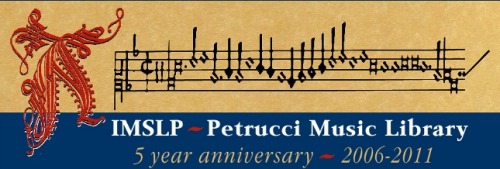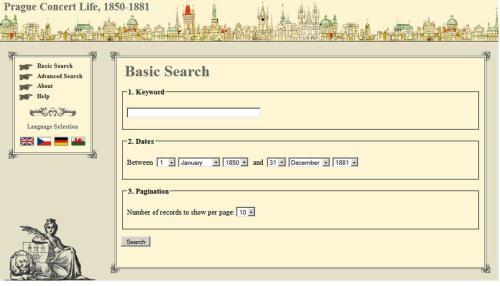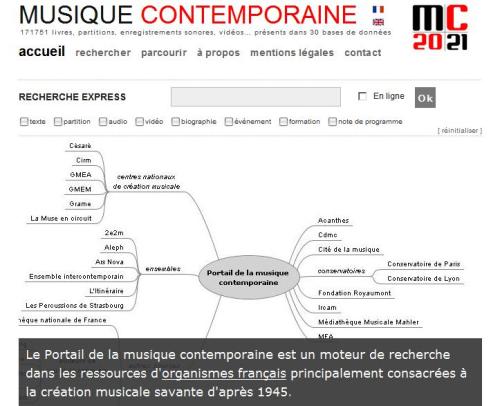Established by Kjetil Maria Aase in 1990, RoJaRo is a continuously updated index of jazz and popular music magazines. This resource is intended to be inclusive, indexing little-known fanzines as well as well-known publications; it also presents hyperlinked lists of relevant magazines and record labels.
Category Archives: Resources
Bokoor African Popular Music Archives
Established in 1990 by the journalist, writer, and musician John Collins, the Bokoor African Popular Music Archives is a Ghanaian NGO that aims to preserve, promote, and disseminate Ghanaian and African popular and traditional performance, and to act as a facilitator, consultant, and resource center for various African arts projects in Ghana and the international African community. It also maintains a database and archive of contemporary African arts and performance traditions, and assists and networks with other collectors and organizations doing similar cultural, educational, and archival work. The Archives include freely accessible books, articles, and sound and video recordings.
Filed under Africa, Ethnomusicology, Popular music, Resources
From girls to women

Designed and edited by Lev Weinstock and Suzel Ana Reily and produced by the Department of Social Anthropology at The Queen’s University of Belfast, Venda girls’ initiation schools presents all of the available materials resulting from John Blacking’s now-legendary fieldwork, undertaken from May 1956 through December 1958, documenting the songs, ceremonies, and dances of the girls’ initiation cycle of the Venda people of the Sibasa district of the Northern Transvaal, South Africa.
The resource includes photographs, sound clips, video clips, texts with translations, transcriptions, and all of Blacking’s writings on this and related subjects.
Comments Off on From girls to women
Filed under Africa, Ethnomusicology, Resources
Harry Partch’s instruments
Sponsored by American Public Media and The Harry Partch Foundation, the free Internet resource Harry Partch’s instruments includes interviews with Partch, a complete recorded performance of his The bewitched, links to essays by and about Partch, and—perhaps most engagingly—a virtual instrumentarium that allows visitors to “play” each of the 27 instruments that he designed and built via their computer’s mouse or keyboard.
The website was produced as part of the American Mavericks radio and Internet series, which features the music and stories of visionary American composers. The series is produced in association with the San Francisco Symphony and its Music Director, Michael Tilson Thomas.
Below, Partch demonstrates his instruments, ca. 1958 (in two parts).
Related articles:
Filed under 20th- and 21st-century music, Instruments, Resources
Prague concert life, 1850–1881
Sponsored by the Leverhulme Trust and Cardiff University, Prague concert life, 1850–1881: An annotated database is a free resource for all those interested in nineteenth-century Czech music, history, and culture. The fullest possible information about each musical performance in Prague—from public concerts to private soirées, from large-scale festivals to everyday rehearsals, in venues ranging from local inns, guest houses, and restaurants to the most fashionable and successful society halls, parks, and gardens—is documented on the basis of articles in Czech- and German-language periodicals from 1850 through 1881; only musical theater events are excluded.
Entries typically list the date, time, and venue; the program and works that were presented; and the individuals, societies, and institutions that took part. Additional commentaries include clarifications of editorial decisions; supplementary factual data such as audience numbers, admission prices, and changes of venue or program; detailed information about individuals, venues, societies, and institutions, highlighting notable trends and occurrences within the city’s musical environment; outlines of the content and critical stance of descriptive reports and reviews; and evaluations of the source material from a scholarly perspective. Search and navigation tools include basic keyword search, advanced search, and hyperlinks.
Comments Off on Prague concert life, 1850–1881
Filed under Reception, Resources, Romantic era
Musique contemporaine / Contemporary music
Founded in 2007 by a consortium of French and international institutions and ensembles, Musique contemporaine/Contemporary music is a bilingual search engine for contemporary art music resources held at French institutions. Users can listen to excerpts of unpublished sound archives of conferences and concerts and read the program notes for these events. A glossary (in French) defines the main concepts involved in contemporary music, and an interactive structural map provides links to glossary entries, composers’ biographies, work excerpts, and so on. Also included are an interactive tag cloud of the composers who are most referenced, a composers’ timeline, and an interactive map showing the main French contemporary music organizations and providing their addresses. Simple and advanced searching tools are available.
Comments Off on Musique contemporaine / Contemporary music
Filed under 20th- and 21st-century music, Resources
Petrucci Music Library

Founded in 2006, the International Music Score Library Project (IMSLP) hosts the Petrucci Music Library, a free wiki-based source for public-domain scores.
 The library, which is named for the innovative music printer Ottaviano Petrucci (1466–1539), mainly comprises scans of music editions whose copyright has expired; it also welcomes scores by contemporary composers who are willing to license their works without charge.
The library, which is named for the innovative music printer Ottaviano Petrucci (1466–1539), mainly comprises scans of music editions whose copyright has expired; it also welcomes scores by contemporary composers who are willing to license their works without charge.
Comments Off on Petrucci Music Library
Filed under Resources










